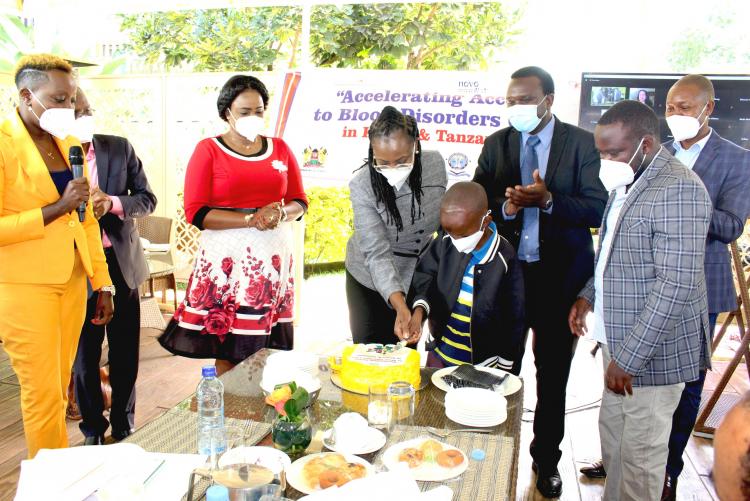Patients with blood disorders will be supported to get rapid access to care thanks to the recently launched Accelerating Access to Blood Disorders Care in Kenya and Tanzania Project.
The 3-year joint project is a joint collaboration of Kenya Haemophilia Association (KHA), Novo Nordisk Haemophilia Foundation (NNHF), Novo Nordisk Foundation (NNF) and Muhimbili National Hospital in Tanzania.
It will focus on supporting rapid access to care for people with haemophilia and will also benefit people with sickle cell disease.
Haemophilia and sickle cell disease are two haematological disorders that are overly inherited and afflict a large population of Kenyans with devastating outcomes. Haemophilia is a bleeding disorder that has severe complications if unattended and inappropriately managed. It can lead to mortality due to uncontrolled bleeding.
Majority of the patients are male due to the nature of inheritance. With a prevalence of 1:10,000 in a population, Kenya should be having 5,000 patients but has only diagnosed 14% of the population. This disease is evenly distributed and all communities are equally affected. Patient care is mainly through infusion of factor concentrates (replacement of clotting factors). As a country, care is only available in 6 health facilities with diagnostic capacity in 2 national referral hospitals.
So far, the association has registered 700 patients out of an anticipated number of 5,000. This calls for more advocacy and intensive screening activities across all the counties. A majority of the patients are young with multiple deformities and complications from the disease. The disease also affects the society extensively through financial drain from the cost of management. Through collaborative partnerships with NGOs like the NNHF and NNF, KHA and MOH have been able to train and build the capacity of over 400 health care providers on haemophilia and other bleeding disorder management across the country.
As an escalation to improve care, the program is up scaling care through improved physical infrastructure, increased testing capacity in all the counties as well as national referral facilities, training for all health care workers across all cadres, advocacy programs and activities. It was noticed that this level of capacity could benefit two different disease areas and improve the utility of the healthcare workers while improving care to patients by merging haemophilia and sickle cell. These two blood disorders are both congenital and majority of the cases can be treated by the same professionals, creating a specialized and sustainable environment with improved efficiency in patient care.
It is therefore, envisaged that this program, in collaboration with the various stakeholders, will aid in boosting care for Kenyans as well as Tanzanians under an environment of shared learning. The objectives of this program will drastically promote attainment of universal healthcare for patients with bleeding disorders as well as those living with sickle cell disease.
Through this project, adequate capacity that ranges from physical infrastructure in all the county referral hospitals will be developed including procurement of diagnostic equipment to improve diagnostic capabilities as well as specialized training for the healthcare workers in caring for patients with the two diseases. This will improve the quality of care while reducing morbidities and mortality. In addition, the development of the national registry for both conditions will aid in a timely, accurate projection for budgeting and planning for the ministry. The development of the national registry for both conditions will aid in a timely, accurate projection for budgeting and planning for the ministry.
- Log in to post comments

